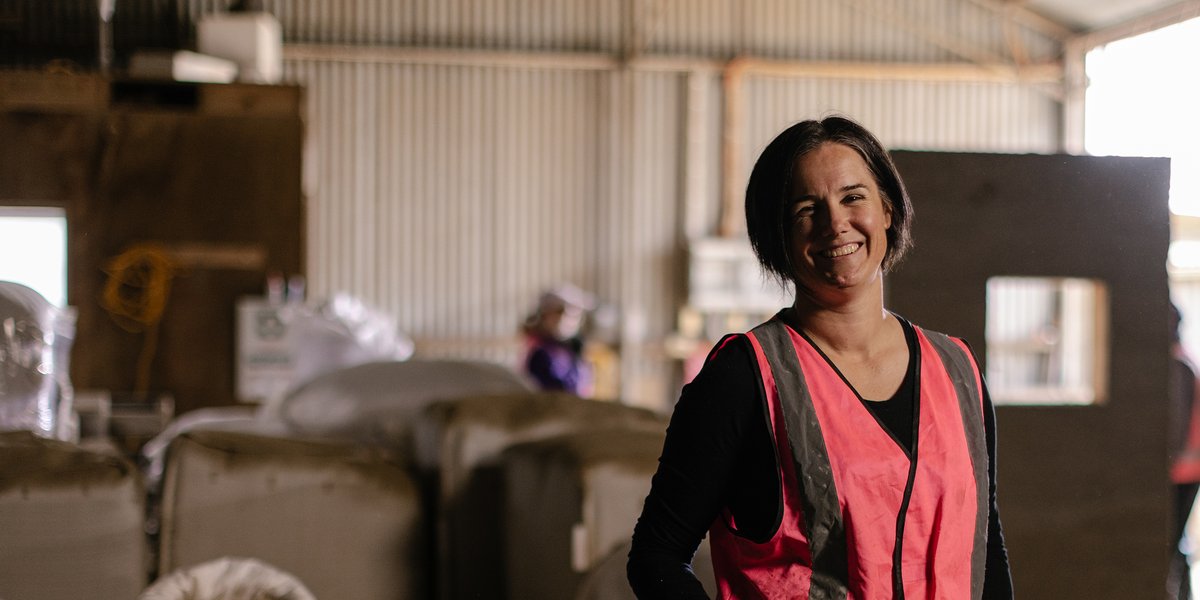Melanie Gent
"You can’t just sit back and expect something to happen. You have to influence that yourself, or with a group of people. Sometimes, if you believe in something, you have to put yourself out there, even if you wouldn’t ordinarily."
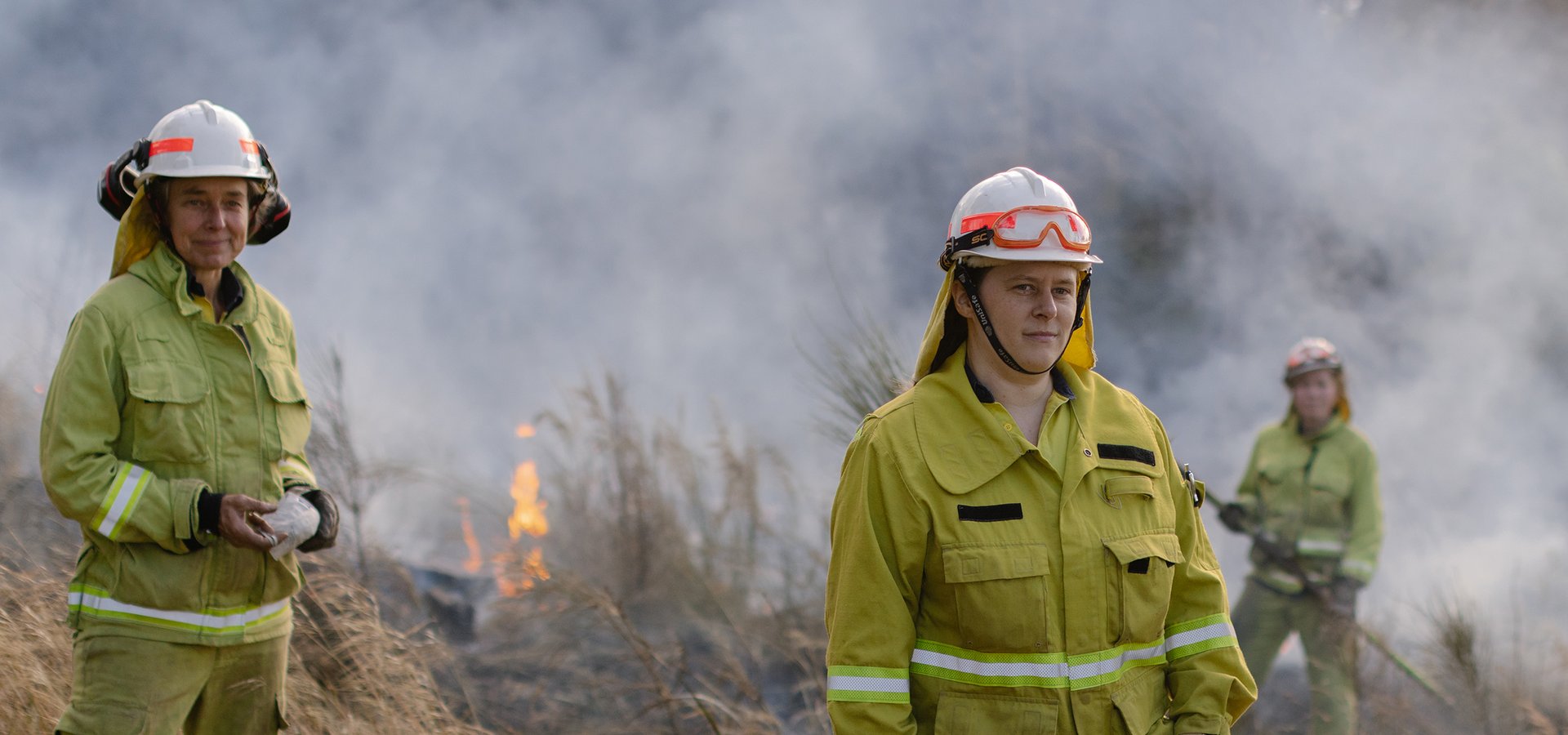
"We’re trying to help restore what would have been here prior to colonisation, and we’re reducing the risk of devastating fire as well. When you start to see the change [...] it’s super exciting to see it happen right before your eyes.”
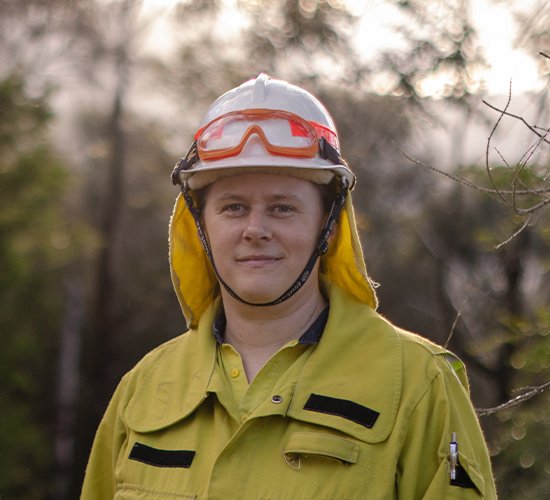
At the Queen’s Domain, on the north edge of Hobart’s city centre, Melanie Gent patrols the edge of a hazard reduction burn.
The cool, low-intensity burning will reduce fuel loads and help enhance the health of the bush. Drip torches in hand, a crew from the City of Hobart Fire Team walk along the contours of the burn area, lighting small pockets of fire to clear the understorey. “A lot of work – a lot of work – goes into the planning,” Mel explains. “We monitor and plan for wind, temperature, humidity, soil moisture, vegetation type, slope of the area, the biodiversity we’re trying to promote. There’s a lot of control, which people who don’t work in fire might not be aware of.”
The Fire Team is a merry crew of people from all walks of life. According to Mel, you “don’t have to be a certain anything” to help protect Hobart from the city’s greatest risk. “You’ve all got to do the same job, but you’re inputting different things.” As team leader, she insists it’s not about everyone being the same. She encourages everyone to value each other, whether their talent is logistics, tree-felling, chemical compounds, or firefighting. Safety is top priority in hazard reduction burns, but if something does go wrong, people need to be able to trust and rely on each other.
The first time Mel worked in a bushland conservation team, she was only 20 years old. She saw a job ad for Green Corps: a six-month traineeship where she could work with a team of 10 young people doing conservation and land management. She’d had no idea that industry existed. When she saw the role was based in her local community at Coningham Beach, Mel took it as a sign. The Green Corps experience unlocked something for Mel. She discovered a career path that combined her knack for strategy and teamwork with her love of the outdoors. From that moment, she worked to gain the skills and qualifications she needed to do the work full-time.
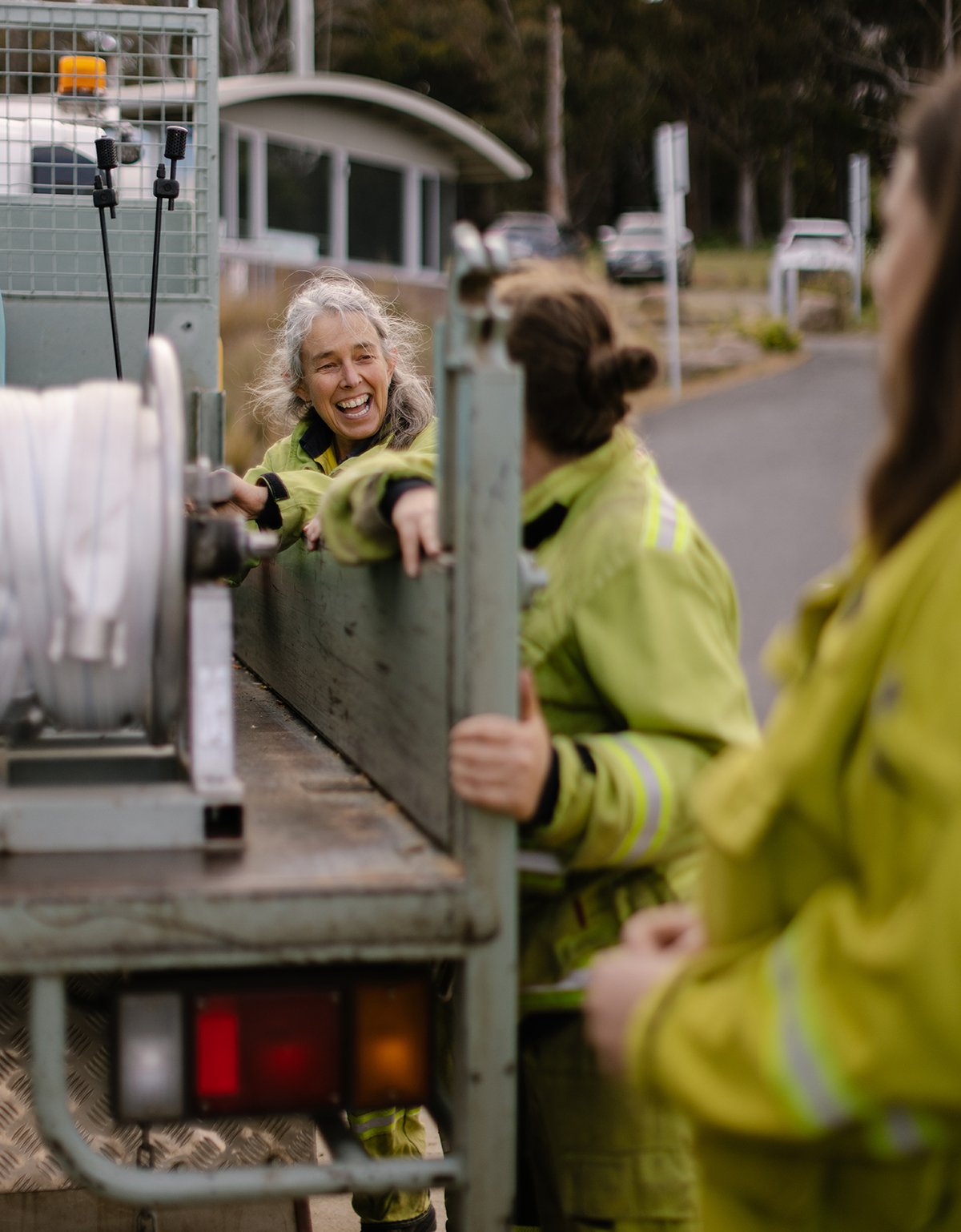
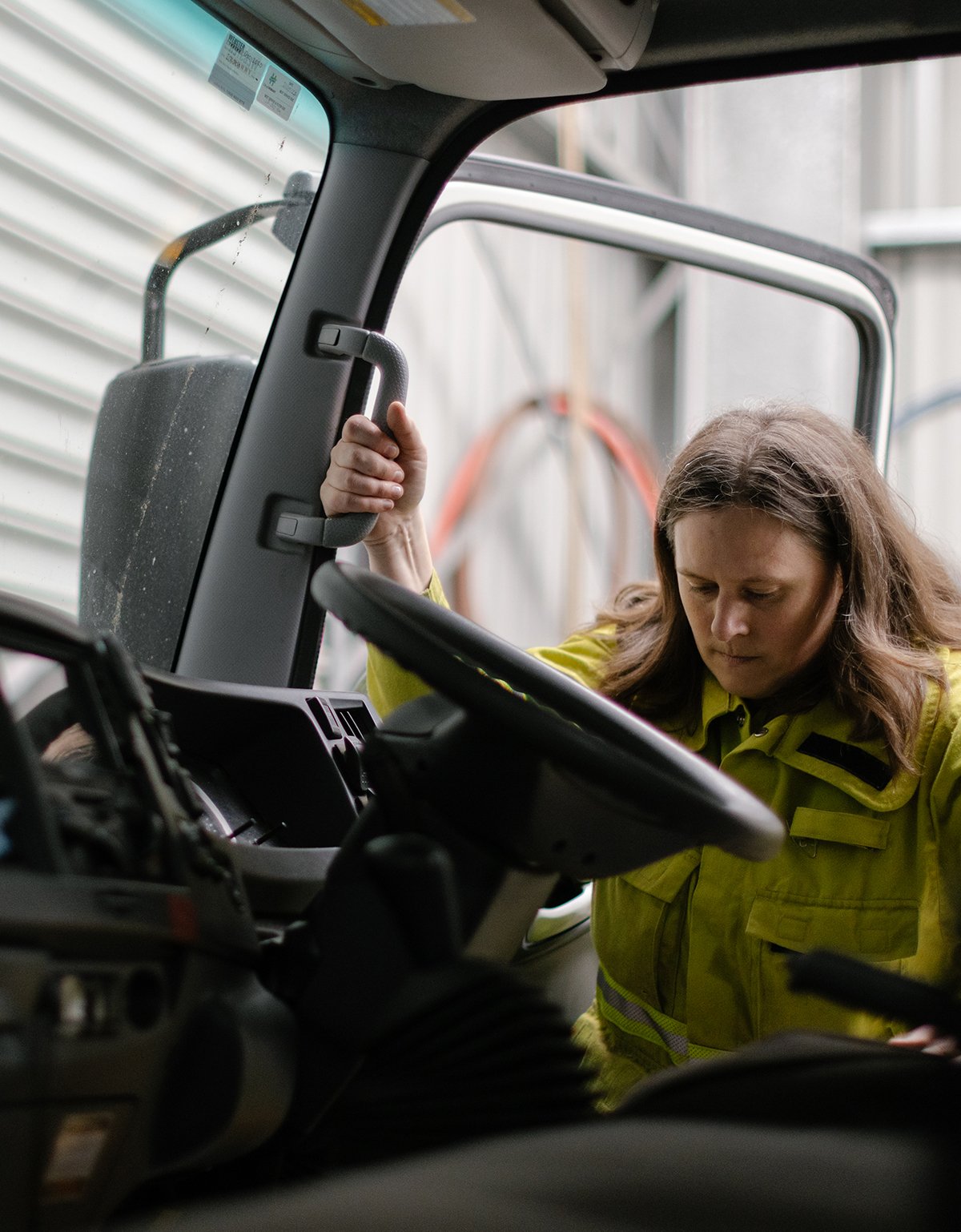
Two years later, Mel was running crews and mentoring young people.
Years later, that same tenacious enthusiasm still drives her. When she first started in fire management, she was one of only a handful of women. “There wasn’t a women’s bathroom, because there’d only been men there for so long,” she recalls. “It’s that unconscious bias, where people don’t realise they’re doing it, or haven’t thought about it. Women end up getting treated differently to men, which has been extremely difficult. So, you’ve got to be determined.” She channels her experience into mentoring the fire crew, especially women team members. “It’s about being a credible role model,” she explains. “If you’ve got trail running or bushwalking experience, that’s 50 per cent of the skills you need. I try to show people, ‘You can do this too.’”
On the fireground, crew members work in pairs. Mel often rosters herself with those less experienced, helping them learn by doing. On a given day, the crew pack vehicles, prep the burn area, light the burn, manage public safety, and run logistics. When the burn has run its course, the team spends hours – sometimes days – “mopping up.” They patrol the fireground, getting water onto it, turning things over, raking, getting the fire out. If a big fire comes through, mopping up will be how Mel and her team are called upon to help. Training the crew is one of the best ways to be ready for that day. “I’ll say, ‘Problem-solve it. Work through it. If you get stuck, I’ll give you a prompt, but have a go. I might be out there in the bush on the other end of the hose, and I need you to be confident and skilled enough to do it.’ I love seeing people realise, ‘Oh my God, I can do this myself!’”
The day of the burn is just one in a series of moments that span hundreds of years. In places like Queen’s Domain, burns can help overcome the legacies of landscape degradation. “We’re trying to help restore what would have been here prior to colonisation, and we’re reducing the risk of devastating fire as well. It’s exciting to address more than one important issue. And when you start to see the change – for example, reducing the number of sheoaks, you see grasses and herbs and ground species come back. It’s not instant recovery for those biodiversity values, but we’ve seen massive shifts in just two years. It’s mind-blowing and super, super exciting to see it happen right before your eyes.”
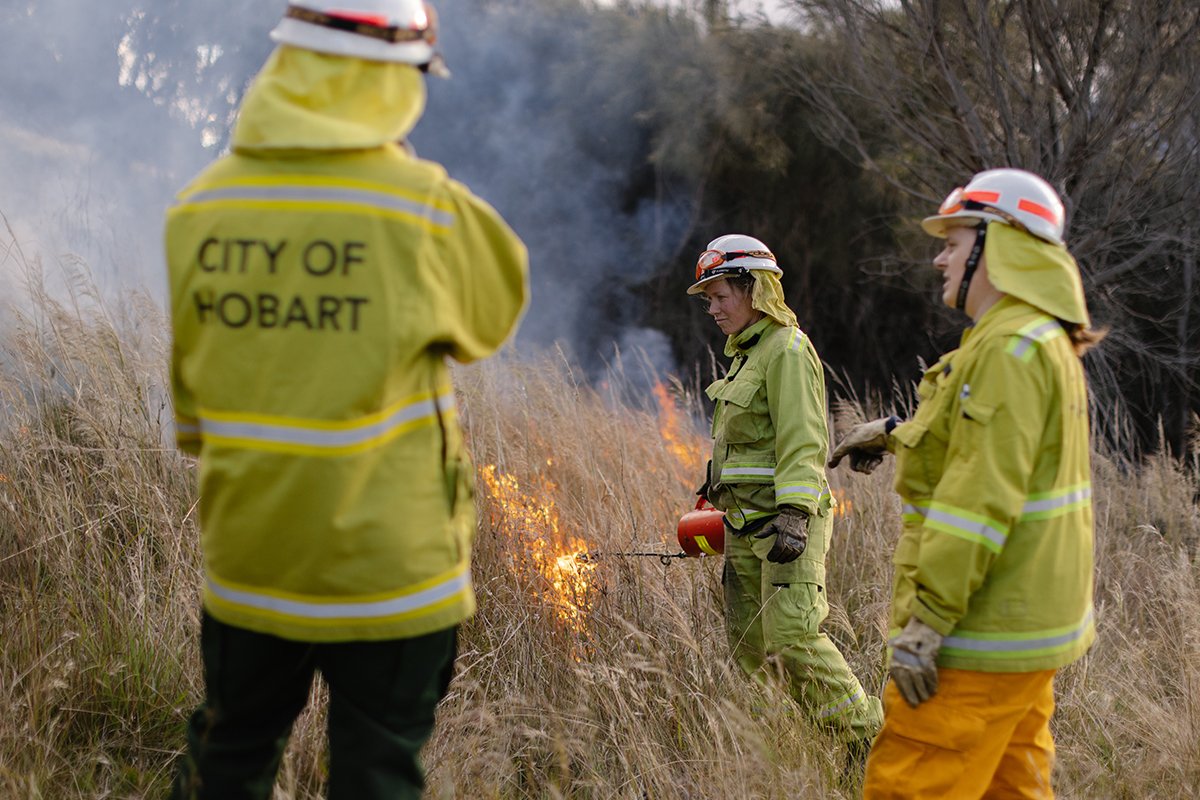
The team is confronting the future, as well. Increasing temperatures and shifting weather patterns have created more intense bushfire seasons and made burn planning more unpredictable. “Some problems can feel overwhelming, if you think too much about it,” Mel says. “Our burn seasons are starting to go out the window. What was once a long period of time, now you might end up with two weeks of suitable conditions, if you’re lucky, and that’s it.”
Mel can’t help but take a more expansive view of life. She supports students doing work experience to help train and engage the next generation. She owns more than a few guitars and has played in bands since she was a kid. She’s an active union member, bringing operational issues to the table. “I’m an absolute introvert,” she says. “But the way you change things is by participating. You can’t just sit back and expect something to happen. You have to influence that yourself, or with a group of people. Sometimes, if you believe in something, you have to put yourself out there, even if you wouldn’t ordinarily.”
In Coningham, where it all began, Mel spent her childhood exploring the coastline, fire trails, and bush tracks of her local recreation area. Now, day by day, burn by burn, Mel and her team are protecting other natural places. “It’s the opportunity to be out and about in that stuff,” she explains. “When I started learning about plants, it went from ‘that’s just the bush’ or ‘just the beach’ to seeing the world through a completely different pair of glasses. Being prepared is around-the-clock stuff for us. It’s all the little moments that add up to being able to achieve a burn, when we’d been told that we couldn’t do it, that it was too hard, and people haven’t been willing to take on the challenge. My attitude is to find a way to do it. It’s not about no, it’s about how.”
Melanie is one of 17 Tasmanians featured in our short screenpiece about Women in Tasmania, created in partnership with our friends in the Department of Premier and Cabinet's Women's Portfolio.
We worked with north west Tasmanian photographers Moon Cheese Studio and southern Tasmanian cinematographer Joshua Lamont ACS for this Tasmanian story.
Read about more Tasmanians
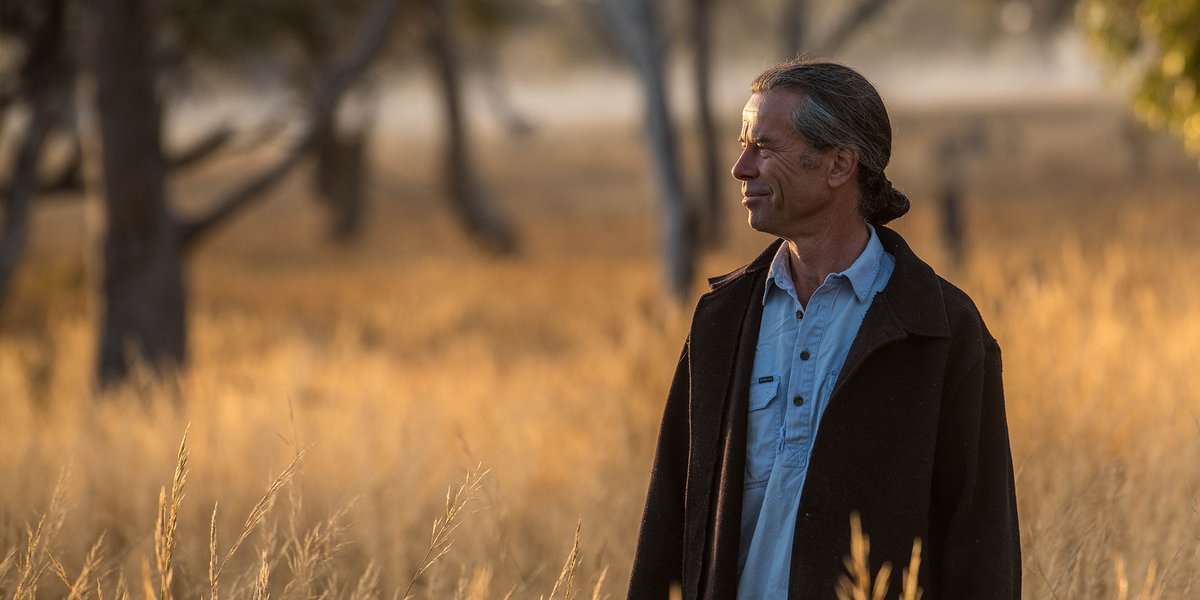
Julian von Bibra
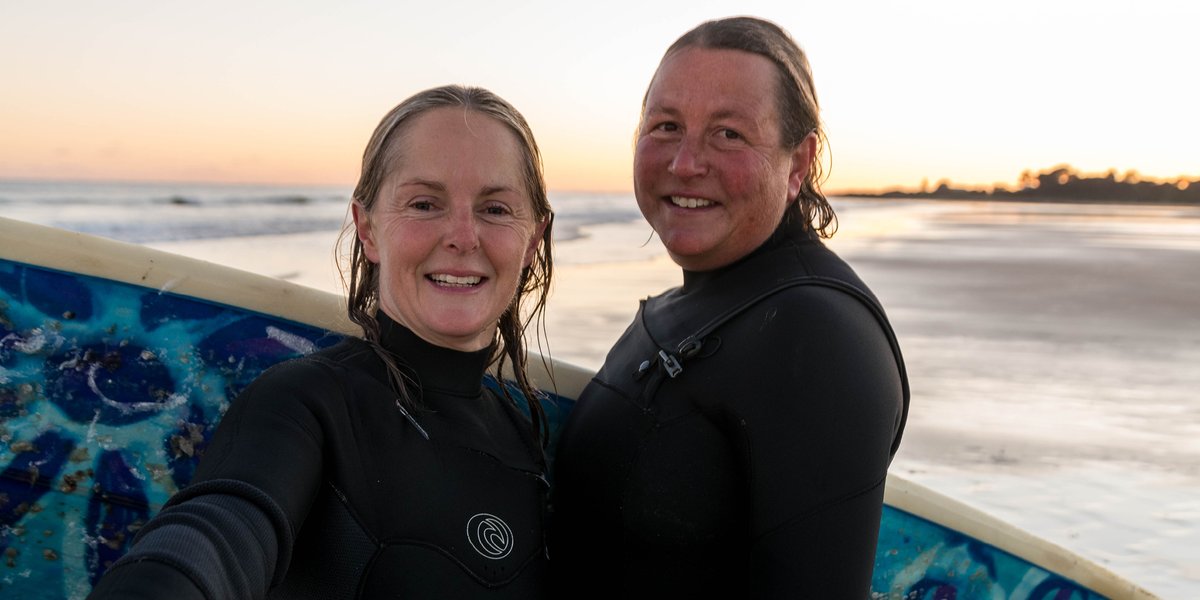
Natalie Potter & Emily Versluys
